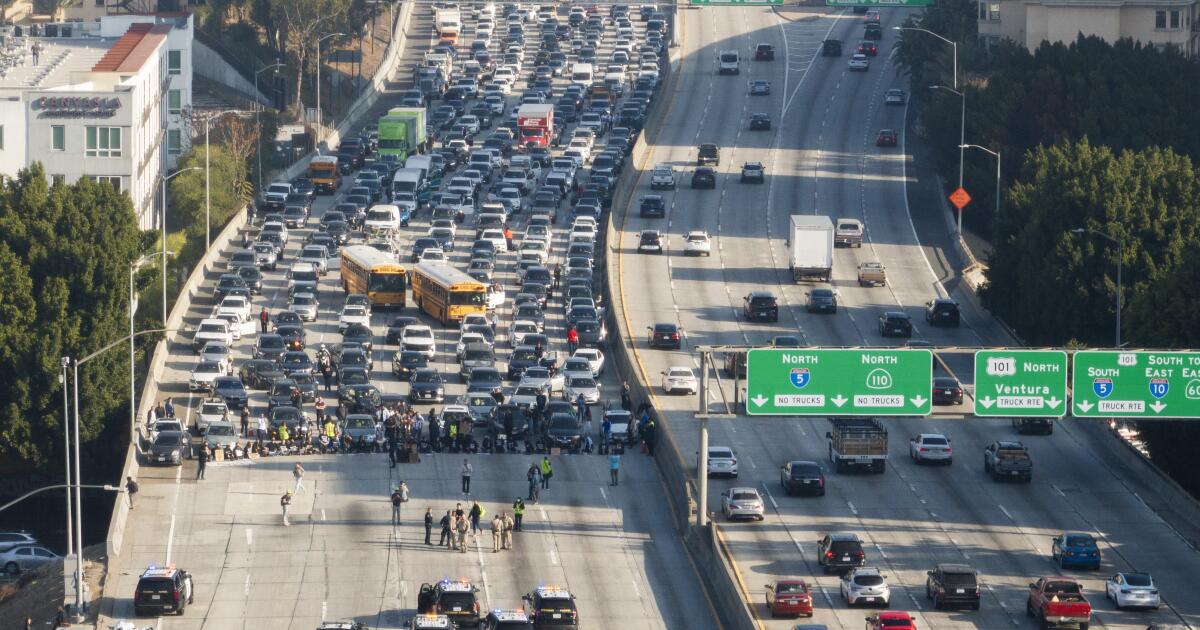UPDATE: A Los Angeles judge has just confirmed that charges against 29 protesters involved in a dramatic shutdown of the 110 Freeway will be dismissed if they complete community service. This ruling, announced on Monday, comes after a lengthy legal battle following the chaotic protest in December 2013, which halted traffic in downtown Los Angeles.
The protest was part of a larger movement opposing Israel’s actions in Gaza, capturing national attention as protesters sat down on the freeway, leading to physical confrontations with drivers. Los Angeles City Attorney Hydee Feldstein Soto initially charged the activists with misdemeanors including unlawful assembly and obstruction of a public corridor.
In a significant turn of events, the judge has allowed the protesters to enter a 12-month diversion program, requiring each to complete 20 hours of community service. If they fulfill this obligation and maintain lawful behavior, their charges will be formally dismissed in October 2026, as confirmed by attorney Colleen Flynn.
During the court proceedings, Flynn emphasized the moral motivations behind her clients’ actions, stating that they engaged in civil disobedience to highlight the humanitarian crisis in Gaza. “These are people who were, out of conscience, making a decision to engage in an act of civil disobedience,” Flynn told the judge.
Earlier this year, two additional protesters received similar diversion opportunities and have already completed their community service, leading to the dismissal of their charges. Flynn initially sought a lesser requirement of eight hours of community service for her clients, but city prosecutors insisted on the full 20 hours, arguing the political motivations behind the protest did not mitigate the legal consequences.
Deputy City Attorney Brad Rothenberg addressed the court, noting the freeway closure affected thousands of commuters in the second largest city in the United States. He argued that the protest posed a significant public safety risk, referencing the potential dangers to motorists and protesters alike.
The legal battle has also sparked discussions about perceived bias in the treatment of protesters. Flynn argued that her clients faced disparate treatment compared to others who had disrupted traffic for different political causes, such as labor rights. She cited social media posts by Feldstein Soto expressing strong support for Israel following the deadly October 7, 2023, invasion by Hamas, which resulted in over 1,200 fatalities in Israel.
Critics have pointed to the subsequent death toll in Gaza, which has surpassed 68,000, predominantly affecting women and children, as reported by the Health Ministry in Gaza. The legal proceedings concluded quietly, but the underlying tensions surrounding the protests and the humanitarian crisis in Gaza remain pressing issues.
As the legal landscape evolves, the next steps for these protesters will be to complete their community service and adhere to the law, with their future hanging in the balance until the dismissal date in 2026. This case draws attention to the complexities of civil disobedience, public safety, and the ongoing humanitarian crisis, making it a significant development in Los Angeles and beyond.
Stay tuned for further updates on this evolving story.
